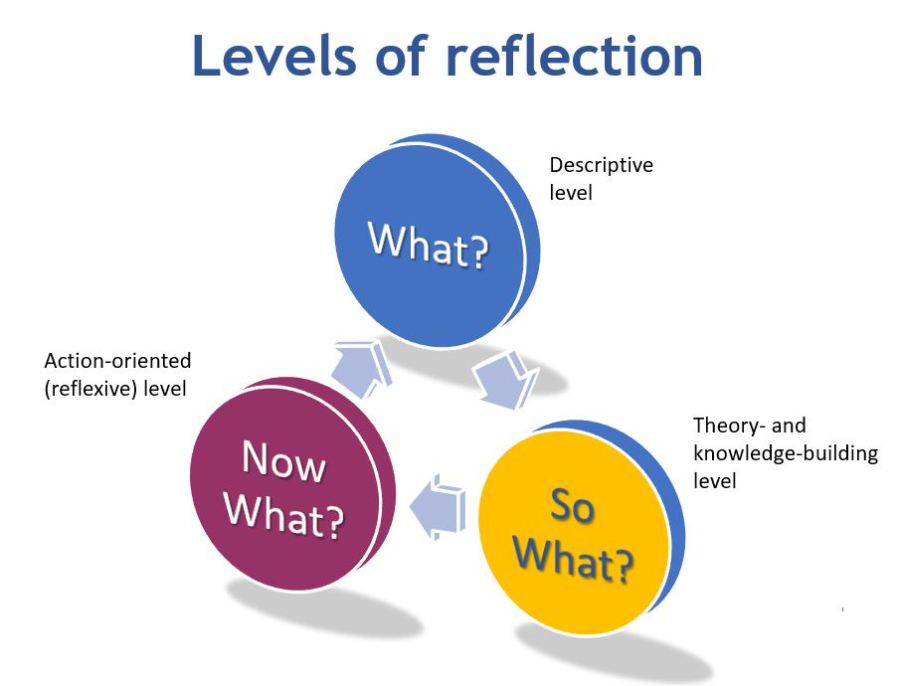Why reflect? What is reflective leadership? How to get in the flow of reflective practices?
- Why reflect?
Practising reflection individually or in a team leads to learning. It widens our perspective on a problem. It helps us develop strategies for dealing with it. Futhermore it enables us to get new insights into our behaviour and thus change our attitude.
- What is reflective leadership?
Reflective leadership is the key to creating a relationship-based organization. It is contains three important skills:
- self-awareness,
- careful observation, and
- flexible response.
Self-awareness refers to a leader’s ability to know herself, her strengths, and her limitations. It implies that a leader is interested in, and committed to, examining her own reactions, thoughts, and feelings about the work.
Careful observation means that leaders are skilled at deciphering the meaning of what they are seeing and hearing. Leaders wonder about the meaning of their own and others’ behavior, tones of voice, body language, or reactions. They ask themselves, “Why might this be happening?” and solicit more information.
Flexible responses require that leaders know their staff—what their personal styles are, how they work best, what motivates them. By doing so leaders can approach each professional in a way that reflects that particular staff member’s needs, strengths, and areas for development. Flexible responses are the most basic—and sometimes most difficult—expression of mutual respect in our relationships.
Reflective leaders regard learning as a lifelong process, and they tend to equilibrate the practice ‘telling’ with ‘asking’ and frequently depend on the collective intelligence capacity of the teams formed in their organizations.

- Great questions asked by reflective leaders
- What have I learnt?
- What were my feelings and thoughts as it was happening?
- How could I explain my experience?
- How could I make use of learning for my future actions?
- What is your opinion of way I felt and acted?
- How have I reacted and behaved?
Based on the answers to the questions asked above, reflective leadership can be considered as a way of approaching the work of being a leader by leading one’s life with presence and personal mastery. In other words, it requires learning to be present, to be aware and attentive to our experience with people in our daily life, and it regards leadership from the standpoint of human experience. This reflection on one’s own experience together with the experience of other people are the starting point for the process of reflective leadership. .
- Get into the flow of reflective process
Use these 3 questions:
What ? So what? Now what?

Graphics from blog of Garry Pearson.
Excerpts from:
What is reflective leadership?
Leadership challenges: Reflective Leadership
 Polski
Polski English
English